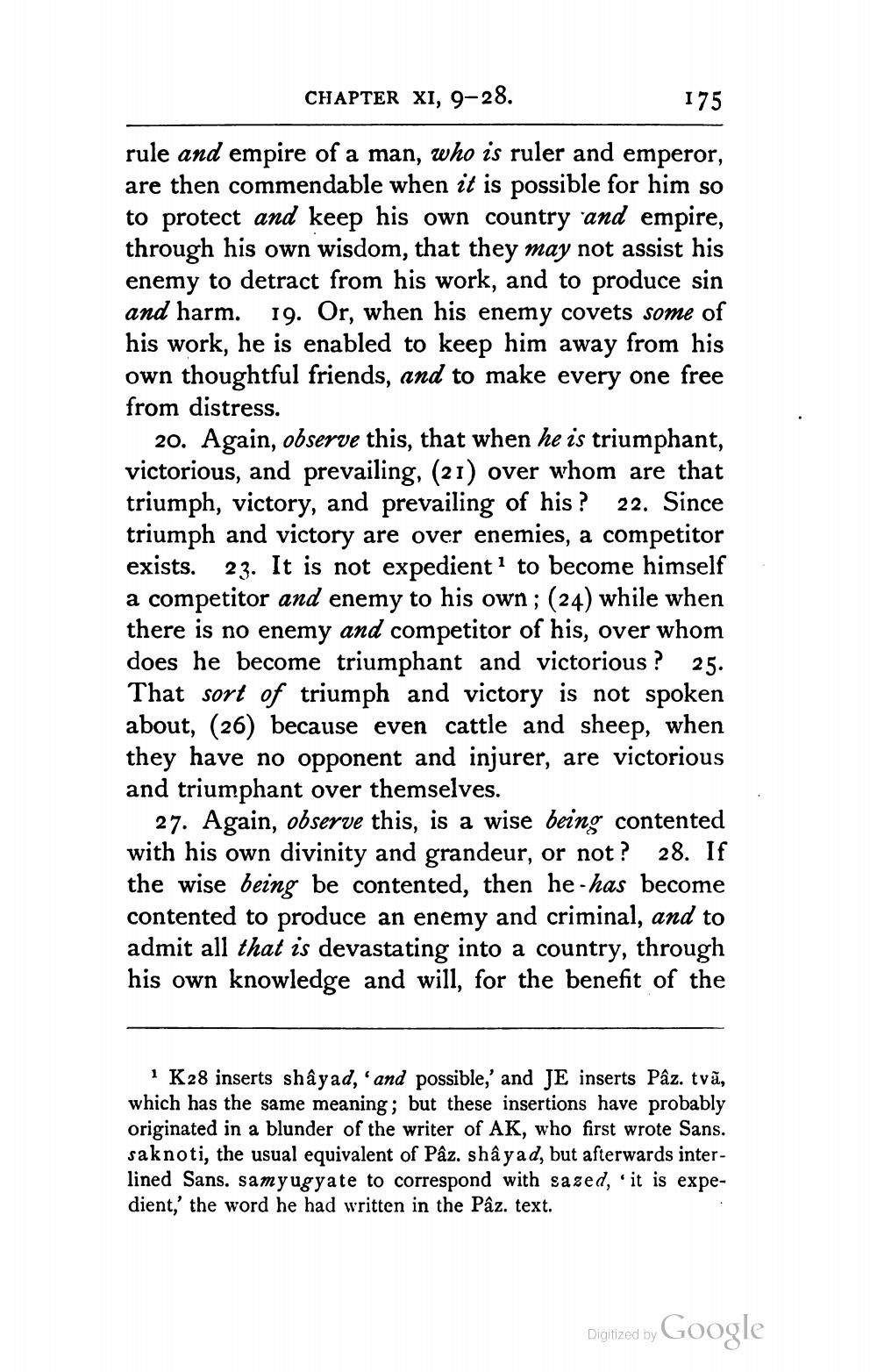________________
CHAPTER XI, 9-28.
175
rule and empire of a man, who is ruler and emperor, are then commendable when it is possible for him so to protect and keep his own country and empire, through his own wisdom, that they may not assist his enemy to detract from his work, and to produce sin and harm. 19. Or, when his enemy covets some of his work, he is enabled to keep him away from his own thoughtful friends, and to make every one free from distress.
20. Again, observe this, that when he is triumphant, victorious, and prevailing, (21) over whom are that triumph, victory, and prevailing of his ? 22. Since triumph and victory are over enemies, a competitor exists. 23. It is not expedient to become himself a competitor and enemy to his own; (24) while when there is no enemy and competitor of his, over whom does he become triumphant and victorious ? 25. That sort of triumph and victory is not spoken about, (26) because even cattle and sheep, when they have no opponent and injurer, are victorious and triumphant over themselves.
27. Again, observe this, is a wise being contented with his own divinity and grandeur, or not? 28. If the wise being be contented, then he-has become contented to produce an enemy and criminal, and to admit all that is devastating into a country, through his own knowledge and will, for the benefit of the
1 K28 inserts shầyad, and possible,' and JE inserts Pâz. tvã, which has the same meaning; but these insertions have probably originated in a blunder of the writer of AK, who first wrote Sans. saknoti, the usual equivalent of Pâz. shầyad, but afterwards interlined Sans. samy ugyate to correspond with sazed, it is expedient,' the word he had written in the Pâz. text.
Digitized by Google




